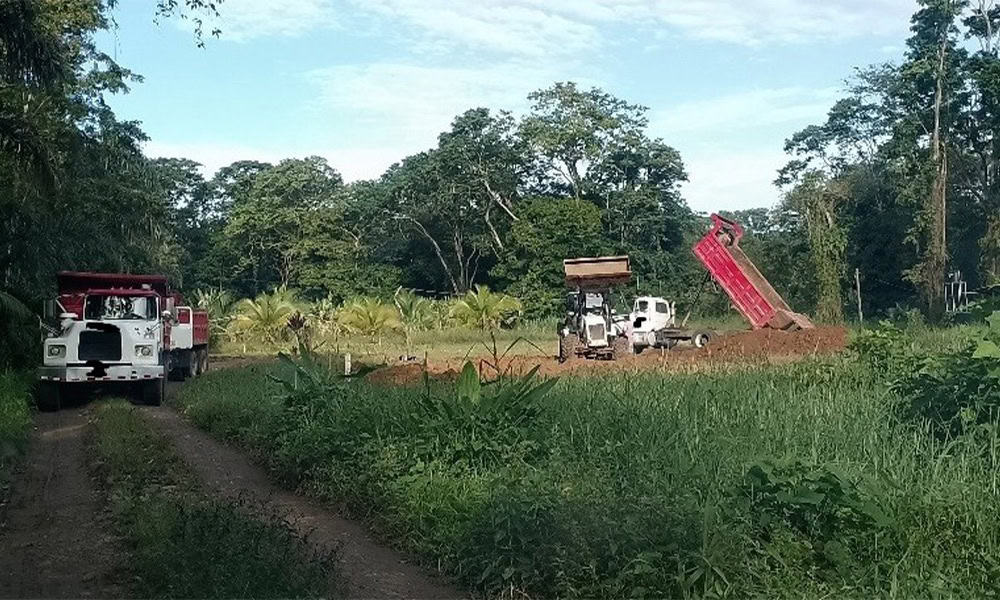Wetlands on the southern Caribbean coast of Costa Rica play a fundamental role in the conservation of biodiversity and the ecological balance in the region. Therefore, residents of Playa Negra, in the southern Caribbean of Costa Rica, raised the alarm about the filling of a wetland on a farm that already had a previous environmental complaint.
Environmental ombudsman Philippe Vangoidsenhoven verified the situation, collaborated with the police to locate the site, and found that the environmental prosecutor was already present conducting an inspection for another complaint. Given the evidence, the prosecutor acted immediately to halt the landfill, which had been ongoing for several days.
This farm, located in a wetland, had previously been reported by Vangoidsenhoven due to its environmental impact. For the ombudsman, the prosecutor’s quick intervention represents a milestone in the fight for the protection of these ecosystems.
For months now, residents of Playa Negra have been warning about activities such as logging and wetland filling—actions that pose a direct threat to the area’s natural resources. Despite interventions by the National System of Conservation Areas (SINAC) and other entities, the problem has persisted, generating concern among environmentalists and the local community.
Playa Negra, part of the southern Caribbean biological corridor, is home to unique ecological wealth. It hosts numerous species and sustains sustainable activities such as ecotourism. However, uncontrolled real estate development and a lack of effective oversight have led to the degradation of these fragile environments. The order to remove the material from the denounced farm marks a step forward in efforts to protect the wetlands, according to Talamanca environmentalists.
These ecosystems are essential habitats for a great diversity of species, many of which are endemic and endangered. The wetlands of the southern Caribbean are host to migratory birds, amphibians, reptiles, mammals, and fish that depend on these environments for reproduction and feeding. They are also a refuge for iconic species such as the Caribbean manatee and various species of sea turtles. Wetlands also play a crucial role in water filtration and purification, removing pollutants and improving the quality of water flowing into the sea and nearby rivers. Additionally, in Costa Rica, they support activities such as artisanal fishing, ecotourism, and scientific research.






